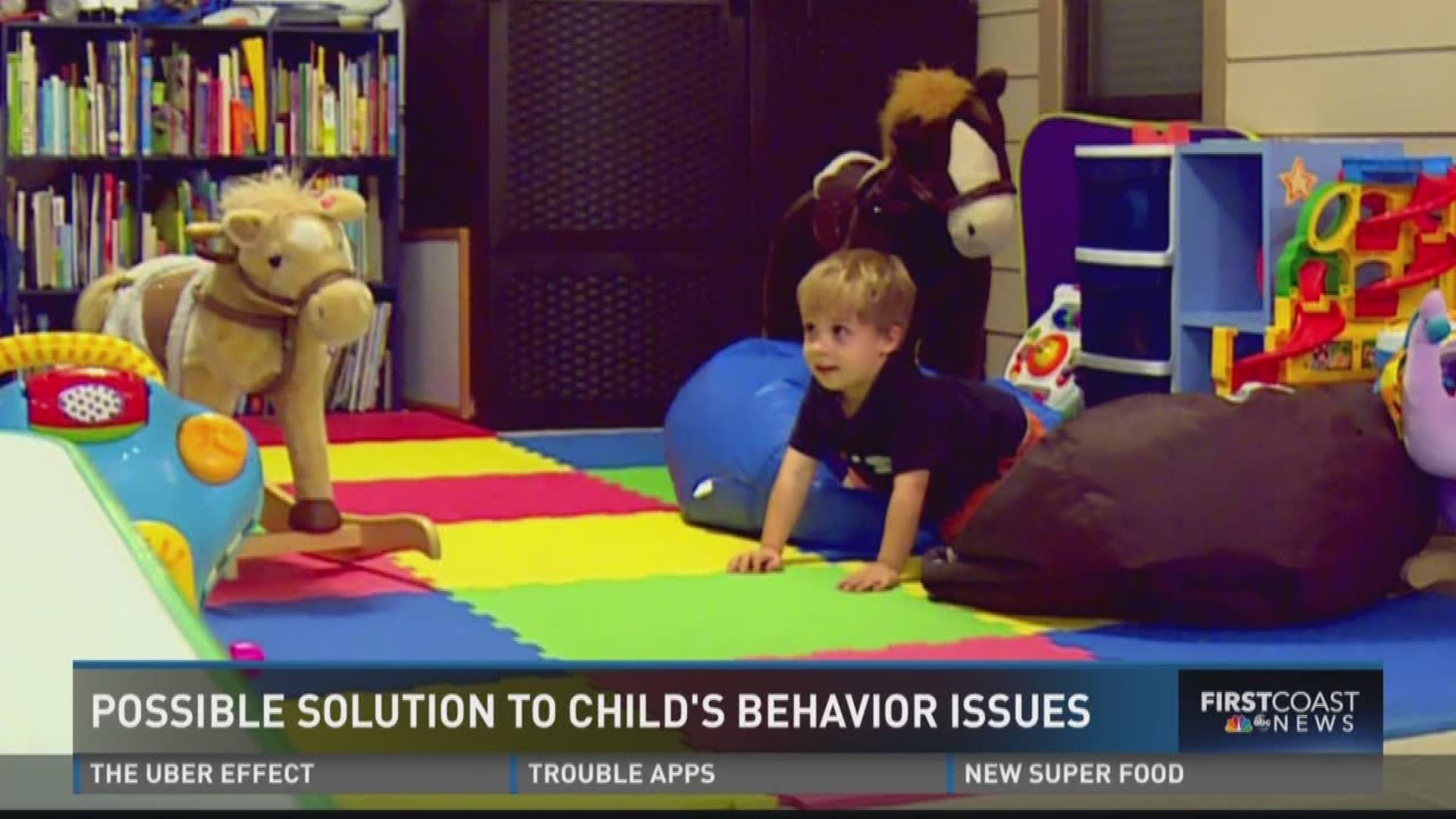JACKSONVILLE, Fla -- Jamie Frenz-Ross thought her son Chase, 2, had allergies.
“He was mouth breathing all throughout the day and he always seemed to take a long time to get over common illnesses,” explained Frenz-Ross. “I took him to an allergist and the allergist recommended that I take him to an ENT.”
It turned out her son had one the most common health problems affecting children, enlarged adenoids.
“The adenoids are at the high part of the throat at the very back of the nose and they mature fairly young, a year-and-a-half to two years will be a peak,” said Pediatric Otolaryngologist Dr. Daniel Wohl.
Like tonsils, adenoids help young children stay healthy and fight infection, but Dr. Wohl says when they get too big they can cause problems.
“What can happen if you get enlargement beyond a certain critical point the child's airway is blocked…They struggle to breathe.”
That can lead to restless sleep as was the case with Jamie's son Tyler, 6, who she discovered also had enlarged adenoids and enlarged tonsils.
“Classically parents will say their children are restless sleepers. They roll around in bed or they awaken at night often more than once. And so when you ask them how are they in the morning the phrase we usually get is oh they're tired and cranky or they're very moody. Then you ask what are they like during the daytime, and more often than not they'll say they're getting tired in the afternoon, they're taking long afternoon naps. We call them catch-up naps, and that is characterized as sleep disordered breathing,” said Dr. Wohl.
Numerous studies have linked sleep problems to behavioral probelms.
In fact, The National Sleep Foundation points to one study that found that treating sleep problems may be enough to eliminate attention and hyperactivity issues for some children.
Another study looked at 78 children scheduled to have their adenoids and tonsils removed. 28% of the group was diagnosed with ADHD. Researchers found one year after having surgery half of them were found to no longer have the behavioral disorder.
“The key here is if you're not getting a good night's sleep, if you really are tired and exhibiting fatigue for the day time and not paying attention as a result you may be mischaracterized as being ADHD, but a good thorough evaluation will prevent the wrong diagnosis being assigned,” said Dr. Wohl.
Chase had surgery to have his adenoids removed, and a few months later his older brother had both his adenoids and tonsils removed.
“Prior to the surgery he would wake up and he was just very cranky you could tell he was just not rested and just very irritable. After the surgery it was a big difference. About one month after his surgery I started noticing that he was waking up consistently in a good mood and I realized it was just because he was getting so much better sleep at night,” said Frenz-Ross.
So parents, here's the doctor's advice, watch how your kids sleep for a couple of days. Is there breathing labored, obstructed, or do they gasp from time to time? Do they toss and turn a lot and wake up several times a night? If so, talk to their doctor.
One more clue your child could have enlarged adenoids is if they take a long time to chew their food or eat slowly. Dr. Wohl says it could be because they have obstructed breathing.
On Monday, February 27, 2017 starting at 6pm Dr. Wohl will be live on the First Coast News Facebook page to answer your questions.

